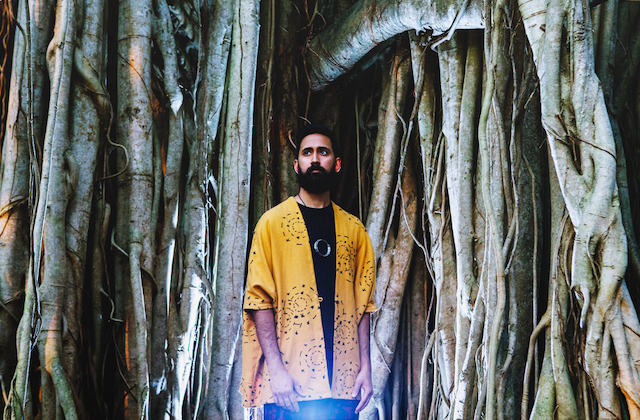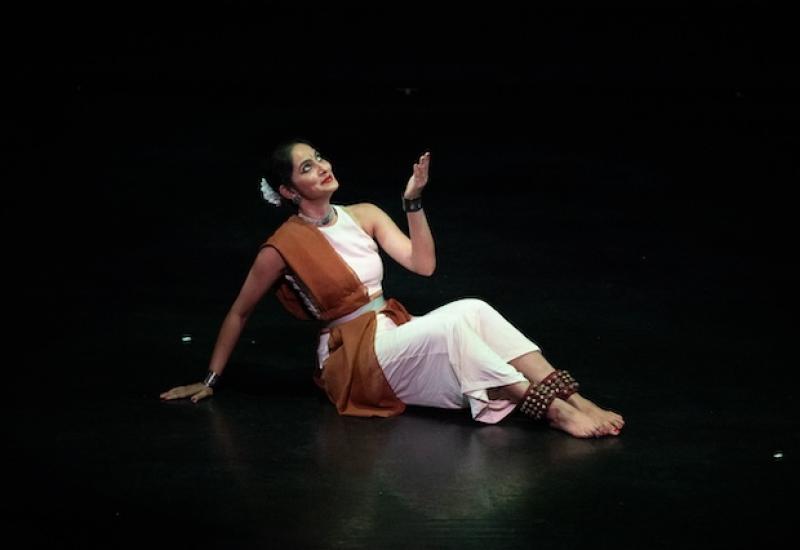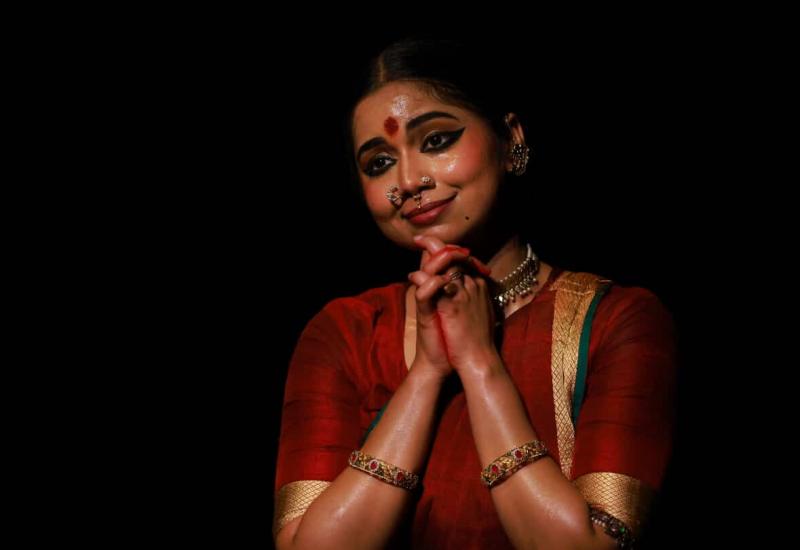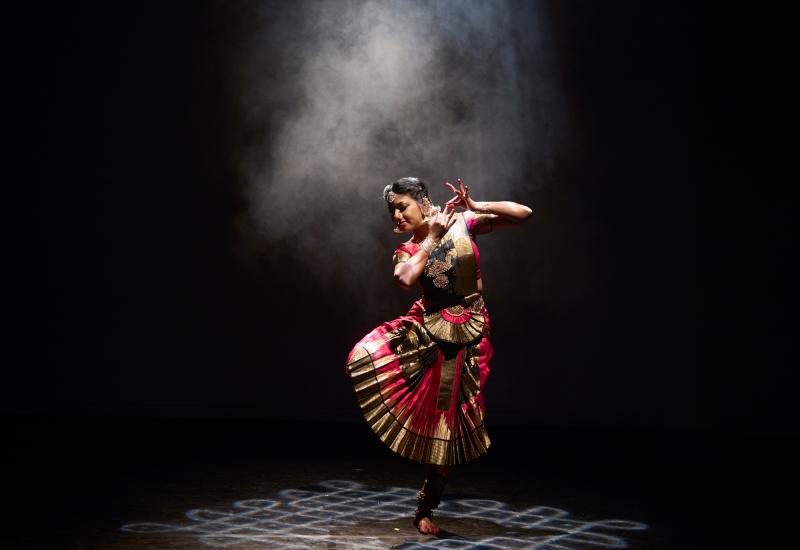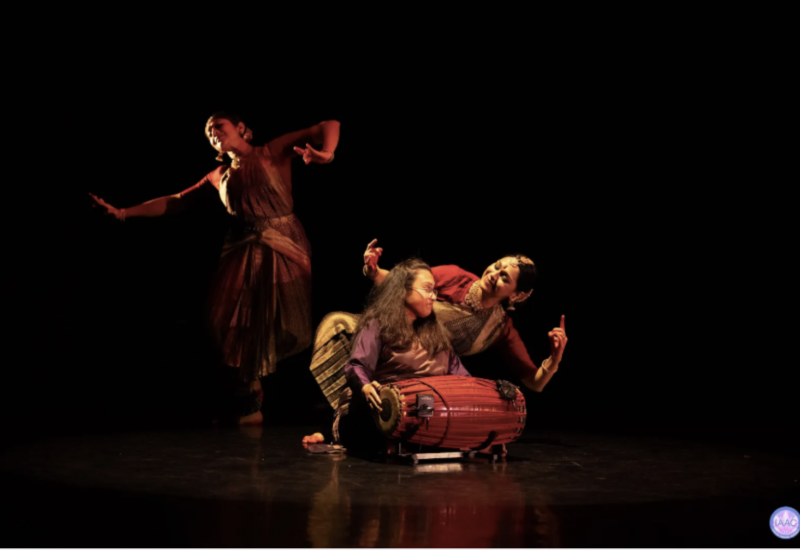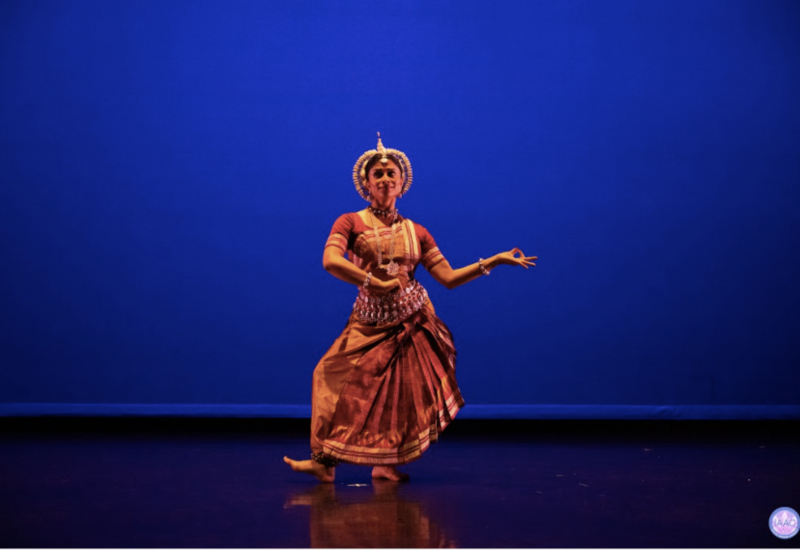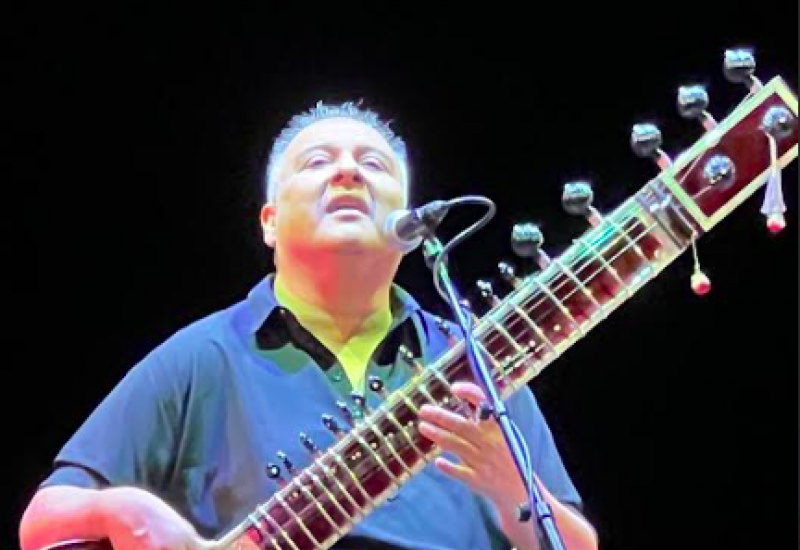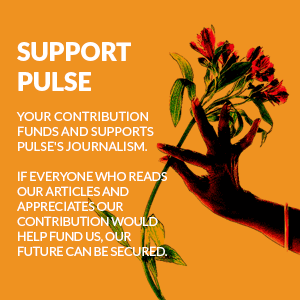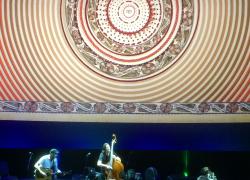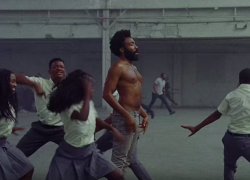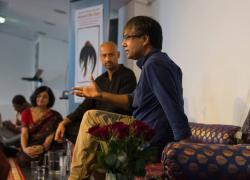KALAK - Live in Mumbai – EP by Sarathy Korwar
The EP KALAK - Live in Mumbai, featuring Tamar Osborn (baritone saxophone/flute/voice), Alistair MacSween (synthesisers/drums/voice) and Sarathy Korwar (drums/voice), is out exclusively on Bandcamp. It is available to download on a ‘name your price’ basis.
The four tracks featured on the EP cover from melody-focused to exclusively percussive, from abstract soundscape to a balance of all elements skilfully sewn together in the longest track ‘Utopia is a Colonial Project’ at 12.36. The opening number ‘Remember to Look Out for the Signs’ begins with a dense canopy of sounds, mostly naturalistic, dots of colour on the canvas. The underlying percussion drives the movement forward while bass sounds on baritone sax and high trills on the flute create wonderful textures. Tamar Osborn’s use of multi wind instruments is phenomenal – is she changing instruments or are Al MacSween’s synthesisers creating some of the sounds? Half-way through, the baritone sax and drums begin to play off each other. The tempo picks up and we are flying on the Mumbai suburban train; as it is approaching a station the pace slows and we get a staccato until it grinds to a halt. It has been an exhilarating ride!
‘Remember Begum Rokheya’ is a pleasant melody, the underlying phrase is vocalised several times, while overhead the riffs of the flute and then the keyboards add layers to keep the listener’s interest.
The centrepiece of the EP is ‘Utopia is a Colonial Project’, in which the Indian influences are subtly drawn under the jazz, ambient sounds that set it apart from Indian classical and are yet enriched by it. The opening section is almost an alap, a meditative exploration on the keyboard/synth to a drone. Al MacSween excels in drawing out notes on the high register that almost sound like the shehnai. Three minutes in, the drums and sax join in a cracking pace and move wondrously together, both providing the rhythm. Over the next seven minutes the musical ideas flow seamlessly: they are racing each other, layering and overlapping, stretching and pushing the limits of the notes. There is not a loose moment, there’s no repetition and yet the piece is cohesive. ‘Utopia’ is an experience in which you can lose yourself.
The last track is a drum solo that gives Sarathy Korwar the spotlight. In ‘Clocks Don’t Tell But Make Time’, Korwar gives an easy, laid back five minutes’ exploration full of textures and nuance.
The word Kalak means both 'yesterday' and 'tomorrow', and the music here takes tradition and adds new layers.
The trio have been playing together for the last three years and are very much a part of the London ‘world music’ scene. They move freely between Afro Cuban, Latin, Turkish, Middle Eastern and South Asian music traditions along with jazz-rock- hip-hop – literally ‘genre defying’. However, this album is a Sarathy Korwar project and gives rein to his imagination and ambition. Since 2016, he has been creating albums every three years and the last Kalak (2022) won the Songlines prize for best album (Asia Pacific).
Come and check out the trio at QEH, where they’ll be performing with sound artist Jason Singh as part of South Asian Sounds on Sunday 10th March at 7.30 pm. Presented by Asian Arts Agency.
KALAK (live in Mumbai) is available on Bandcamp.
Listen to Sarathy talking to DJ Ritu.

